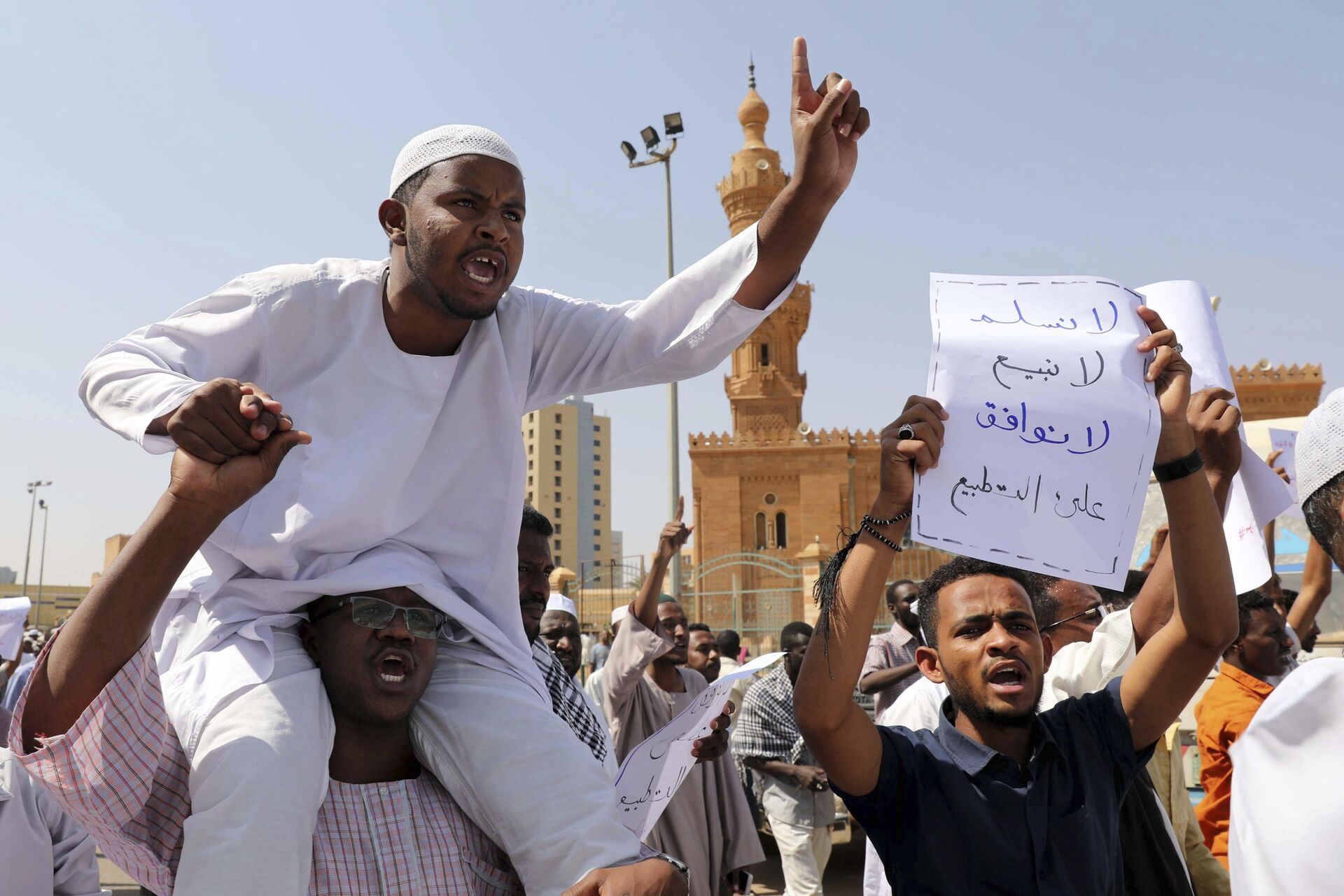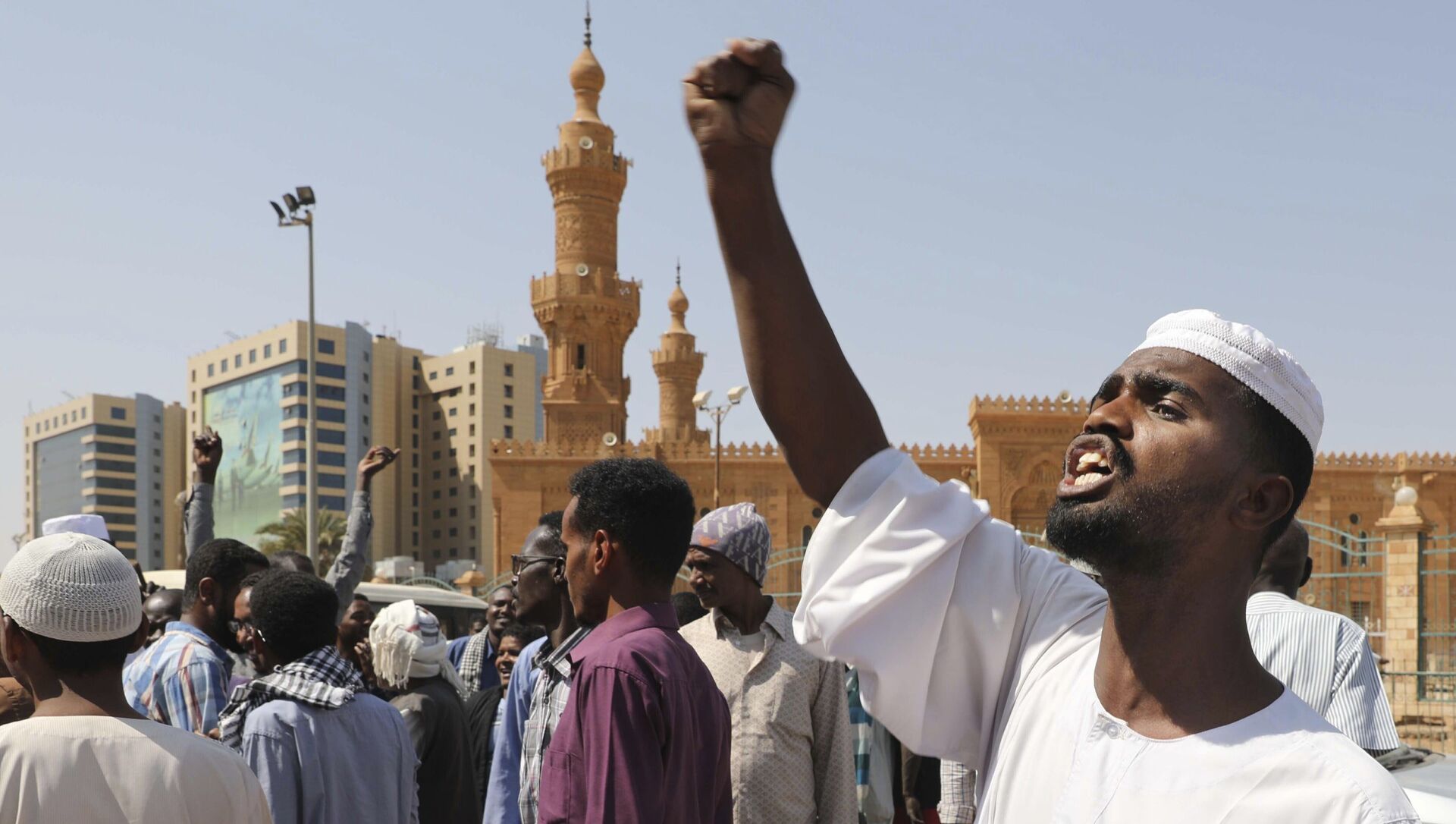Sudan's Council of Ministers has voted to repeal the 1958 Israel boycott law which prohibits Sudanese nationals and entities from having any contact or trade with their Israeli counterparts.
Tuesday's vote is the latest move by Sudanese authorities to gradually improve ties with Tel Aviv following the country's signing of a memorandum of understanding with the US in January to formally normalise ties with the Jewish State after agreeing to do so late last year.
The measure now heads to a joint meeting of Sudan's cabinet and the sovereign council for final approval.
Khartoum introduced the boycott law in 1958. In addition to contacts and business relationships, the law prohibited the direct or indirect import of Israeli goods.
Local media reported on government plans to abolish the boycott law back in January, but official sources denied the reports at the time. Sudan's traditional government, coming to power in the wake of a military coup in April 2019, has made normalisation of ties with Israel a gradual process amid resistance from the population and fears that a speedy improvement of relations could exacerbate local tensions.

Sudan became the third member of the Arab League to sign on to the US-brokered Abraham Accords after the United Arab Emirates and Bahrain did so last year. Morocco moved to normalise ties with Israel in December 2020, after the US agreed to recognise Morocco's claims to Western Sahara.
* A terrorist group outlawed in Russia and many other countries.





